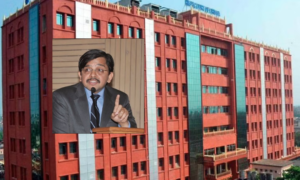In its bid to prevent malaria and dengue, the state government has decided to revive the defunct zonal malaria offices (ZMOs) in the state and re-name them as zonal vector borne disease (VBD) offices soon.
Currently, the ZMOs at Cuttack, Sambalpur and Berhampur are lying non-operational. While the posts of ZMOs were withdrawn, posts of entomologists were lying vacant for over five years. At a high-level meeting of the health department recently, it was decided to strengthen these offices with additional manpower, keeping in view the increase in population, sources said.
Deputy director, National Vector Borne Disease Control Programme (NVBDCP), Dr M M Pradhan, pointed out currently the government swings into action only when some persons test positive for vector-borne diseases. There should be surveillance on what types of mosquitoes are present and where so that preventive steps can be taken in case anything is found abnormal, he advised. “These offices will primarily work as monitoring and surveillance units for mosquito-borne diseases,” Dr Pradhan said.
The government has also decided to analyse death trend due to malaria in tertiary care hospitals separately where mainly complicated cases are referred. The step is necessary for a correct estimate of malaria deaths as currently medical colleges and private hospitals are not covered under the routine malaria surveillance system, resulting in underreporting of malaria deaths, government sources said. A report in medical journal ‘Lancet’ in 2010 had claimed that around 51,000 people die of malaria every year in Odisha. The government has decided to develop a database of malaria deaths in government medical college and hospitals from hospital records.
Besides, to overcome fund shortage for indoor residual spray (IRS), as part of mosquito control measures, the government would sanction Rs 5 crore under non-plan expenditure for IRS wages from 2013. Government sources said IRS coverage has been very poor this year as sufficient funds could not be mobilized.
To prevent dengue in vulnerable areas such as Talcher, which witnessed high casualties from the disease last year, the government would keep these under high surveillance. A team from National Vector Borne Disease Control Programme (NVBDCP) will be stationed at Talcher to assist the administration on technical aspects of dengue prevention. The government has also decided to change health messages on dengue, which are disseminated through the media, to avoid monotony.
Dengue fever had created panic in Talcher last year. More than 3,000 patients were found to be suffering from dengue fever and around 30 persons died due to the disease in the state in 2011, majority of who were from Talcher.
According to experts, this time of the year is crucial to prevent the outbreak of dengue and malaria. “After monsoon, mosquito-borne diseases generally flare up. Concerted preventive steps should be taken now to avoid a situation like in 2011,” cautioned Dr S K Kar, director of Regional Medical Research Centre (RMRC).














